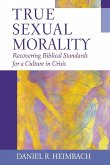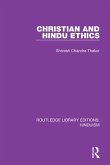"From the sexual abuse scandals in the Roman Catholic Church to the 2015 U.S. Supreme Court decision outlawing state-level bans on same-sex marriage, it has become painfully clear that Christians cannot afford to downplay sex or rely on outdated assumptions about sexual well-being or inadequate normative understandings of sexual activity. Feminist theological approaches to sex, particularly in the Catholic tradition, which consider not just what we should do in sexual spheres, but rather what sort of sexual people we should aspire to be, indicate a way forward. The aim of this book is to connect robust theological/ethical analysis with the practical sexual issues particularly confronting college-aged and younger adults today. The book critically examines four contemporary social practices and phenomena wherein sex plays a central role: the "hookup" culture that predominates on college campuses; "sexting"-that is, the sending of naked photos or videos via text message; sex work/prostitution; and sex trafficking. To respond to these multifaceted topics equipped only with the ethical tools of individual free consent on the one hand, and chastity on the other, is to respond in a woefully inadequate manner. Instead, Christians must learn to discuss sex not as a taboo subject to be approached sheepishly or worse, summarily dismissed, but rather as the subject of frank yet profound conversation. In a related vein, families, churches, and schools must dramatically increase efforts to discover, address, and prevent future instances of childhood trauma. These steps, the author argues, would go a long way toward helping young adults define themselves and others not by hypersexualized-and heavily gendered-social norms or attitudes, but rather by each person's fundamental status as dignified and beloved by God. It would thus encourage a positive regard for one's own basic desires, well-being, and decision-making agency, while also directing respect for those very same capacities in others"--








